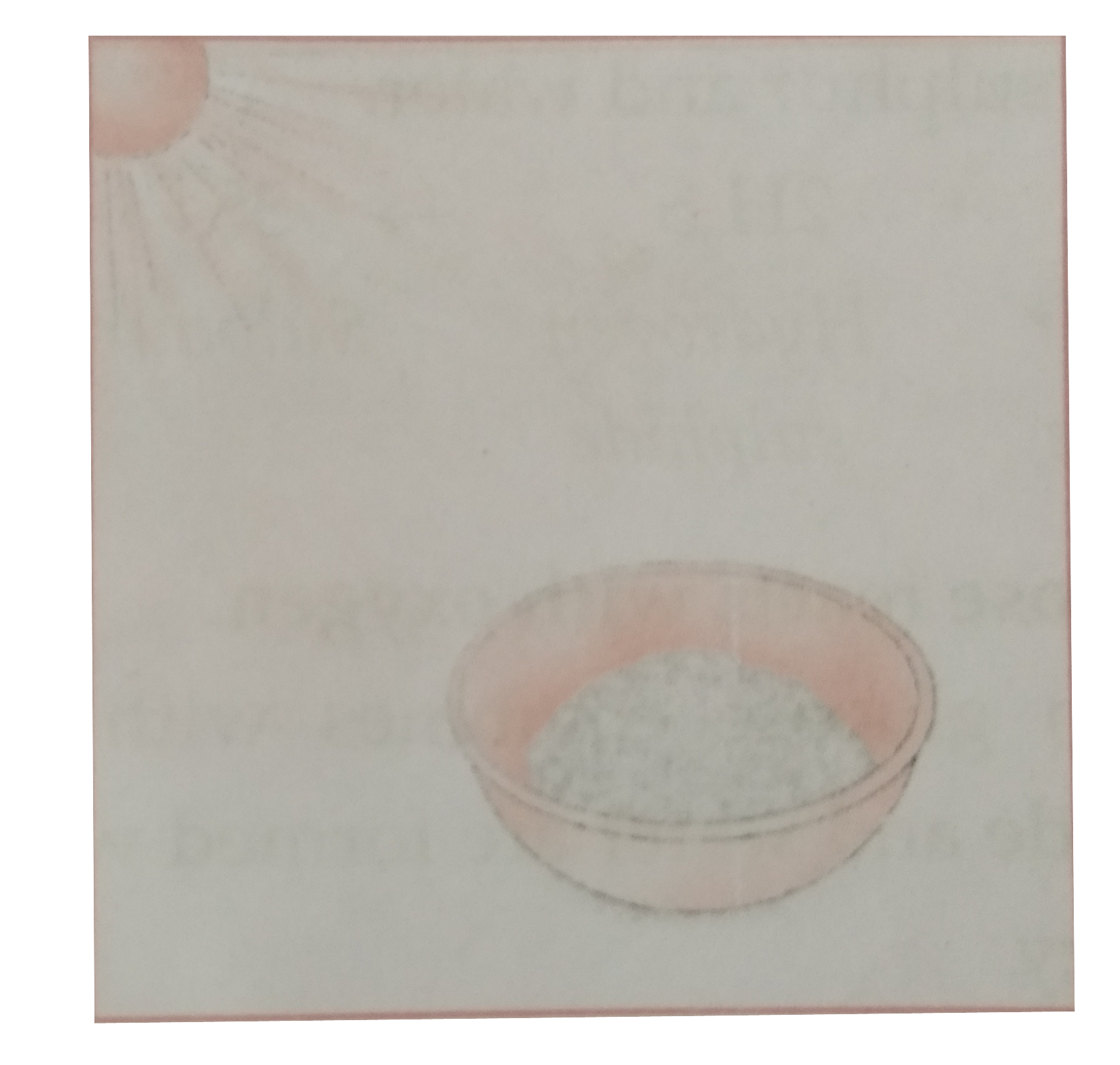Mention the factor that affected the rate of a chemical reaction. Solution in Tamil
The rate of reaction depends upon the following factors.
(i) Nature of the reactions:
(i) 2NO(g)+P2(g)→2NO3(g)→Fast
2CO(g)+O2(g)→2CO2(g)→Slow
These reactions appear to be similar but the first is fast while second is slow. This is due to the difference in the amouts of energies which are required for breaking up of different bonds and different amounts of energies are released in the formation of different bonds.
(b) 2Al+6HCl→2AlCl3+3H2↑
Zn+2HCl→NzCl2+H2↑
Al and Zn react with dilute hydrochloric acid, H2 gas is liberated and water soluble salts of the metals are formed. however, the reaction of aluminium metal takes place faster as compared to zinc metla. The nature of metal is responsible fro this difference. Al is more reactive thn Zn. Therefore, the rate of reaction of Al with hydrochloric acid is higher than the of zinc. Nature of reactivity of reactants influences the rate of a chemical reaction.
(ii) Concentration of the reactants:
Greater the concentration of the reactants, faster is the reaction conversely, as the concentrations of the reactants decrease the rate of reaction also decrease. Dilute HCl reacts slowly with CaCO3 and thereby, CaCO3 disappears slowly and CO2 also liberates slowly on the other hand the reaction with concentrated HCl takes plce rapidly and CaCO3 disappears fast. Concentrated acid reacts faster than dilute acid, which means that rate of reaction is proporational to the concentration of reactants.
Temperaturre:
The rate of reaction increases with increase of temperature. In most of the cases, the rate of reaction becomes nearly double for 10K rise of temperature. In some cases, reactions do not take place at room temperature but take place at higher temperature.
(iv) Presence of catalyst:
A catalyst generally increases the speed of a reaction without itself being consumed in the reactin. In case of reverse reaction, a catalyst helps to attain the equilibrium quickly without disturibing the state of equilibrium.
(v) Size of the particles of reactants :
For a reaction involving a solid reactant or catalyst, smaller the particle size, greater is the surface area, and faster is the reaction.
(vi) Presence of light :
Some reactions do not take place in the dark but can take plce in the presence of light like photosynthesis or photochemical reactions.
Topper's Solved these Questions
- CHEMICAL REACTIONS AND EQUATIONSBOOK - CHETAN PUBLICATIONCHAPTER - CHEMICAL REACTIONS AND EQUATIONSEXERCISE - ASSIGNMENT-3
18 Videos
- CHEMICAL REACTIONS AND EQUATIONSBOOK - CHETAN PUBLICATIONCHAPTER - CHEMICAL REACTIONS AND EQUATIONSEXERCISE - ACTIVITY BASED QUESTIONS:
5 Videos
- CARBON COMPOUNDSBOOK - CHETAN PUBLICATIONCHAPTER - CARBON COMPOUNDSEXERCISE - Answer the following (Any 1)
2 Videos
- METALLURGYBOOK - CHETAN PUBLICATIONCHAPTER - METALLURGYEXERCISE - ASSIGNEMENT -21
1 Videos
Similar Questions
The reaction CaCO3→CaO+CO2 is a ______ reaction
View SolutionThe diagram displays a chemical reaction. Obserbve carefully and answer the question.

Identify the type of chemical reaction that will take plce and define it. How will the colour of the salt change ?
View SolutionExplain with an example what is meant by substitution and addition reactions.
View SolutionElectrolytic reduction of alumina
View SolutionMention the factors that affect the rate of a chemical reaction.
View Solutionरासायनिक अभिक्रिया के वेग पर प्रभाव डालने वाले कारकों का उल्लेख कीजिए।
View Solutionरासायनिक अभिक्रिया के वेग पर प्रभाव डालने वाले कारको का उल्लेख कीजिए।
View SolutionMention the factor that affected the rate of a chemical reaction.
View SolutionMention the factors affecting rate (velocity) of a reaction.
View SolutionMention the factors that affect the rate of a chemical reaction.
View Solutionरासायनिक अभिक्रिया के वेग पर प्रभाव डालने वाले कारको का उल्लेख कीजिए।
View Solutionरासायनिक अभिक्रिया के वेग पर प्रभाव डालने वाले कारकों का उल्लेख कीजिए।
View SolutionMention the factors affecting the rate of reaction.
View SolutionMention the factors affecting the reaction rate.
View SolutionMention the factors affecting the reaction rate .
View SolutionThe factor that affect the rate of the chemical reaction is..
View Solution
